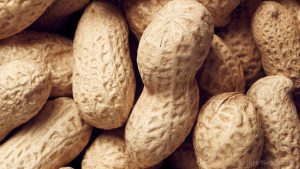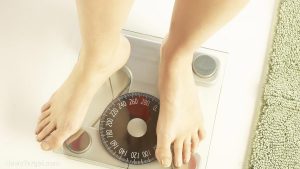Relying on painkillers for period pain could be bad for your health in the long run…here are some natural remedies to try


Period pains are experienced by most women during their “time of the month.” The pain it brings varies from woman to woman. In fact, one in five women experiences period pain that can be as painful as a heart attack. As a result, a lot of them resort to taking painkillers. However, relying on painkillers can be bad for the health in the long run. The greatest risk comes with non-steroidal anti-inflammatory drugs (NSAIDs) like ibuprofen.
Over time, taking painkillers can lead to serious gastrointestinal side effects, such as stomach inflammation, reflux, constipation, and diarrhea. It can also result in low blood pressure. The risk is especially greater to those who are also taking aspirin or ibuprofen, or those who smoke or drink alcohol. In addition, conditions like stomach ulcers can be overlooked for months or even years. In some cases, they rupture or bleed through the intestines, resulting in intense pain, until they get noticed.
“Sometimes this can result in hospital visits or even ICU visits because very quickly these patients can bleed without much notice,” Sahil Khanna, a gastroenterologist, told the Daily Mail Online, as cited by The Sun.
Furthermore, these painkillers should not be taken on an empty stomach and should not be taken over the recommended maximum, which is 250 milligrams (mg) per day. Persistent pain during your menstrual period, even when taking medications, can be a result of an underlying condition like endometriosis.
Natural remedies for menstrual cramps
The good thing is that menstrual cramps can be treated without putting your health at risk with these natural pain remedies. (Related: The Discomfort and Pain of Menstrual Cramps can be Avoided Naturally.) Here are some natural remedies for menstrual cramps:
100% organic essential oil sets now available for your home and personal care, including Rosemary, Oregano, Eucalyptus, Tea Tree, Clary Sage and more, all 100% organic and laboratory tested for safety. A multitude of uses, from stress reduction to topical first aid. See the complete listing here, and help support this news site.
- Make dietary changes – Three of the main causes of menstrual cramps are inflammation, nutritional deficiencies, and stress — which can all be affected by diet. Therefore, it is important to avoid inflammatory foods, such as animal fats, during menstruation. In addition, avoid sugar, processed foods, and anything with preservatives because they can make cramping worse. Salty foods should also be avoided as they can increase water retention which causes menstrual pain. Other foods to avoid during menstruation include dairy products, alcohol, caffeine, vegetable oils, corn, soybean oil, and margarine.
- Take multivitamins – Taking magnesium, B vitamins, and fish oil can prevent cramps and bloating.
- Exercise – The increased blood flow and the endorphins released from exercising can help fight prostaglandins and reduce cramping.
- Apply heat – Using a heating pad can help open blood vessels, enhance blood flow, and relieve pain.
- Use herbs – Applying anti-spasmodic essential oils on the lower abdomen can help relieve pain and regulate estrogen. Ginger tea and aromatherapy medicines like German chamomile, sweet marjoram, and sweet fennel can help reduce muscle spasms. Because these remedies are preventative, they must be taken one to two days before the start of the period.
- Stay hydrated – Adequate water consumption prevents the body from retaining water as well as bloating. Drinking warm or hot water can increase blood flow to the skin and help relax cramped muscles.
- Use Eastern medicine – The Emotional Freedom Technique (EFT) is one of the elements of Eastern medicine that is helpful in easing many types of physical discomfort like menstrual cramps. This is because it helps balance the natural rhythms and flows of the body and move blocked energy.
- Try some special products and therapies – The nerves that direct and regulate the reproductive and hormonal systems can be impaired when the spine, especially in the lower back, is not working properly. This disruption can result in cramping. Chiropractic care is a way to realign the spine. Although it is not a treatment for premenstrual syndrome (PMS), a lot of women experienced better reproductive health while under chiropractic care.
- Get enough sleep – Having enough sleep is generally important to one’s health. Interruptions in regular sleep rhythms can disrupt the natural sleep cycle and lead to even more irritability, fatigue, and stomach cramping.
Read more news stories and studies on the health of women by going to WomensHealth.
Sources include:
TheSun.co.uk
OrganicAuthority






